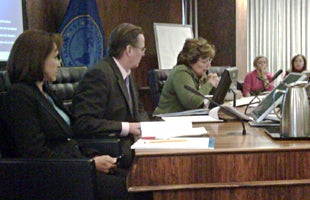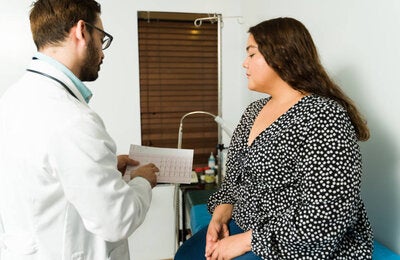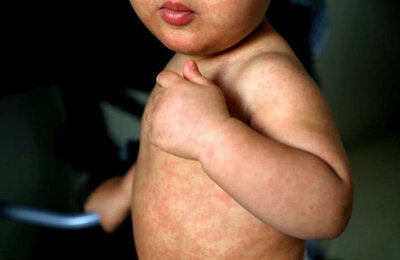
 The Pan American Health Organization/World Health Organization (PAHO/WHO) is coordinating the mobilization of efforts to help health authorities in Haiti meet the basic health needs of their people in the aftermath of Tuesday's earthquake, through its country offices. All the countries in the Region have responded with great solidarity.
The Pan American Health Organization/World Health Organization (PAHO/WHO) is coordinating the mobilization of efforts to help health authorities in Haiti meet the basic health needs of their people in the aftermath of Tuesday's earthquake, through its country offices. All the countries in the Region have responded with great solidarity.
Washington, D.C., Jan. 14, 2010 (PAHO) - The Pan American Health Organization/World Health Organization (PAHO/WHO) is coordinating the mobilization of efforts to help health authorities in Haiti meet the basic health needs of their people in the aftermath of Tuesday's earthquake, through its country offices.
 Dr. Mirta Roses, PAHO Director, convened a regional virtual meeting this morning linking all PAHO/WHO Representatives in Latin America and the Caribbean to exchange information on actions taken by PAHO/WHO Member States in the region in response to the earthquake. Dr. Roses in turn provided updated information on the situation in Haiti and emphasized the importance of a coordinated response to ensure more efficient and effective delivery of disaster assistance.
Dr. Mirta Roses, PAHO Director, convened a regional virtual meeting this morning linking all PAHO/WHO Representatives in Latin America and the Caribbean to exchange information on actions taken by PAHO/WHO Member States in the region in response to the earthquake. Dr. Roses in turn provided updated information on the situation in Haiti and emphasized the importance of a coordinated response to ensure more efficient and effective delivery of disaster assistance.
PAHO is coordinating and facilitating the mobilization of health experts and rescue teams from a number of its Member States and other regions to provide relief and recovery. PAHO/WHO is working with other United Nations agencies, international partners, and local authorities in these efforts and is assessing the impact of the earthquake on the health situation. Donors countries including USA,Canada and Spain have pledged additional funds through PAHO.
All the countries in the Region have responded with great solidarity by sending rescue missions, medical teams, medical supplies, water, food and other general provisions to Haiti. Some of these relief efforts include:
- Dominican Republic has strengthened the health services and hospitals along the border to assist with evacuations of injured and care for the sick.
- Cuba provided 403 health workers, 334 of whom were already working in the country prior to the earthquake. The ministries of health of Cuba and Haiti are coordinating the evacuation of survivors with urgent medical needs for treatment in Cuba.
- Jamaica has also agreed to receive earthquake victims in their hospitals, which have been placed on alert.
- Brazil had contributed US$10 million and an air bridge with critical supplies.
- Venezuela has offered to help reestablish the provision of free fuel to medical facilities.
- Cargo planes carrying provisions including medical, rescue and military personnel, medical supplies, water, food, and shelter (tents) have been sent by countries including Argentina, Chile, Ecuador and Peru.
- Mexico has sent rescue teams, cargo planes and hospital vessels.
- Colombia, Costa Rica, Ecuador, El Salvador, Honduras, Nicaragua, and the CARICOM countries, among others, are also providing important contributions and are awaiting information on additional specific needs.
In a press briefing today, PAHO's Deputy Director, Jon Andrus, noted that "coordination is the key role that PAHO/WHO can play." "Our PAHO Emergency Operations Center [in Washington, D.C.] is operating as a clearinghouse for information," said Andrus. "We are conducting daily global conference calls with WHO headquarters in Geneva and with partners in the U.N. Global Health Cluster to best coordinate the response to the emergency."
In her virtual conference, PAHO Director Dr. Roses emphasized the following priorities:
- In this first week, the most important health priorities are search-and-rescue efforts to find survivors trapped beneath rubble and treatment for people with major injuries.
- Countries offering support should coordinate an effective delivery of that support with their embassy in Haiti or with the UN Stabilization Mission in Haiti (MINUSTAH).
- Any medical personnel, field hospitals, rescue teams set up by donor countries and organizations sent to Haiti must be self-sufficient and should not require support from the local community.
- Disaster assistance from donor countries and organizations is best provided on the basis of on-the-ground needs assessments, and in coordination with national authorities.
- After the first two weeks, donor countries and organizations should be prepared to provide assistance in the medium and long term, including the provision of safe water, food, medical supplies and personnel, as well as coordinated actions and projects to reconstruct health facilities and the health system in general, and address other longer-term needs.
- Hospitals can and should be built to withstand the impact of disasters and should be planned and equipped to remain functioning after disasters.
PAHO's Director will continue to hold virtual conferences with PAHO/WHO Representatives and Ministers of Health in the Region, as part of the PAHO coordination efforts and response to the situation on Haiti.
Links
- PAHO Disasters & Humanitarian Assistance website
- Donate to Haiti Earthquake Relief
- Twitter, PAHO Emergency Operations Center
- PAHO YouTube Channel
- PAHO Facebook page
- PAHO/WHO Twitter
For more information please contact: Donna Eberwine-Villagrán, Tel. 202 974 3122.



